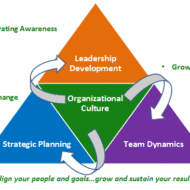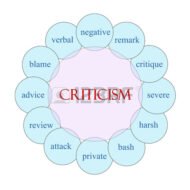Posted by Managementguru in Entrepreneurship, Human Resource, Organisational behaviour, Principles of Management, Training & Development
on Mar 31st, 2014 | 0 comments

Defining Organizational Culture Business is an integral part of the society; and it influences other elements of the social system, which in turn affect business. The entire sphere of business activities are influenced by the social structure and culture of a society. The social system is influenced by the way the business functions, innovations, transmission and diffusion of information and new ideas etc. Business activities have greatly influenced social attitudes, values, outlooks, customs and traits. However, it is very difficult and, in some cases, almost impossible to change many elements of the social environment in the short run. Hence, a business may have to anticipate and adapt to these uncontrollable external environments. Socio-cultural environment refers to the influence exercised by certain social factors, which are “beyond the company’s gate“. This includes attitude of people towards: Work Wealth Knowledge Family Marriage Religion Education Ethics and social responsibility of business. Belief System Influencing the Action: Culture is something that is evolved in a society over a long period and it represents the unified belief system of a large group of people. An organization can be distinguished from another by way of its culture, since organizational culture is unique in its perspective and methodology. When people from different social backgrounds are made to work under the same roof, a corporate organization acquires a distinct culture. Culture conveys a sense of identity for the organization. It facilitates the generation of commitment to do something noble than one’s own self-interest. Cultural Differences: As business go international, the need for understanding and appreciating cultural differences across countries is essential. Any move from one country to another will create a certain amount of confusion, disorientation and emotional upheaval. Especially, people form Asian countries that migrate to the west are subjected to what is called a “culture shock”, in terms of attitude, working style, language, way of life, dress codes and negotiating styles. Freshers may adapt to these changes quickly, since they are natural and easy to be trained. The problem arises with individuals who had been working under a totally different cultural setup from that of the new cultural environment; they will have to undergo the process of ‘unlearning‘, which is more like swapping old ideas for new ideas. This change process is what both the employees and the management find challenging; but ultimately what needs to be done has to be done. Culture Shock: Multi national and Trans national companies, which have business establishments in different parts of the world, must be prepared to cope with the culture shock. Since huge investments go into their projects, they have to think and analyze about the cultural and social aspects that have a definite impact on the working of organisations. For example, the work attitude of employees in the west might lay emphasis on services and results, oriented towards self-improvement; while that of the Asian counterparts may be patience and sacrifice rooted in emotions and loyalty. Business can be considered as a large social network serving to satisfy economic and social interests; culture acts as the social glue that helps hold the organization together by providing appropriate standards for the behavior of organization members. Slogans of Some Reputed Organizations in the Industry: Nokia: Connecting people Jet Airways: The joy of flying Reliance Industries: Growth is life Citibank: Your citi never sleeps The above cited examples give you a fair idea about what a particular company stands for. The orientation of these companies, expressed in the form of SLOGANS contributed to the successful conduct of their...

Posted by Managementguru in Human Resource, Organisational behaviour, Principles of Management
on Mar 17th, 2014 | 0 comments

Criticism Makes You Stronger and Sharper “Flattery is telling the other person precisely what he thinks about himself.” –Dale Carnegie “Criticism may not be agreeable, but it is necessary.”-Winston Churchill Critics are always feared for their barbed tongue and piercing comments. If you look at popular figures and celebrities, they tend to give much importance to these comments as they are real tools for self improvement and personal enhancement. Criticism helps improve knowledge, helps all the parties involved and helps one to learn and react to the actions of others. It is also a no-cost source of research that promotes a team spirit as well as a certain broad-mindedness / open mindedness of the human resources of an organization. It is a non-monetary tool of motivation. It helps in achieving organizational goals and objectives, also helps in realizing hidden mistakes, and tackles various bottlenecks. No doubt, it is a mixed blessing! Despite its benefits, it renders the following costs, which are the dark side of the coin: 1. It paves the way to enmity and hostility amongst those who frame policies and those who implement them. 2. It may lead to industrial dispute. It creates an unpleasant, undisciplined atmosphere in an organization. 3. It may result in unhealthy conflicts in an organization, undermining its human resources base. 4. It could also kill the spirit of initiative. 5. A superior may feel hurt or insulted when his subordinates / peers pinpoint his short-comings. Criticism can be made more positive on the following premises: 1. Do not perceive it as something bad or a shortcoming. If you feel it is unworthy of you, turn a deaf ear to it. 2. Give some time for the dust to settle down when someone is rude in his criticism as, with time, its impact will be diluted. 3. If you are criticized unfairly defend yourself and stand by your conviction. 4. Perceive it as a source of potential help in making wise decisions. 5. Do not arm the critic by counter attacking. That blows into a vendetta at times. 6. Do not raise your voice above the voice of critic – let him go ahead and be mild and amicable with him. Criticism is like the proverbial double-edged sword, and so can easily be made more effective as a potential business management tool by selecting leading and conductive spots where critics can come together and draw their views verbally / non-verbally, publicly or anonymously. Perceive critics as a vital source to help solve and implement solutions for the problems raised. Explore the critic’s view fully and freely, providing all sorts of ways in which critics can express their deliberations without...




